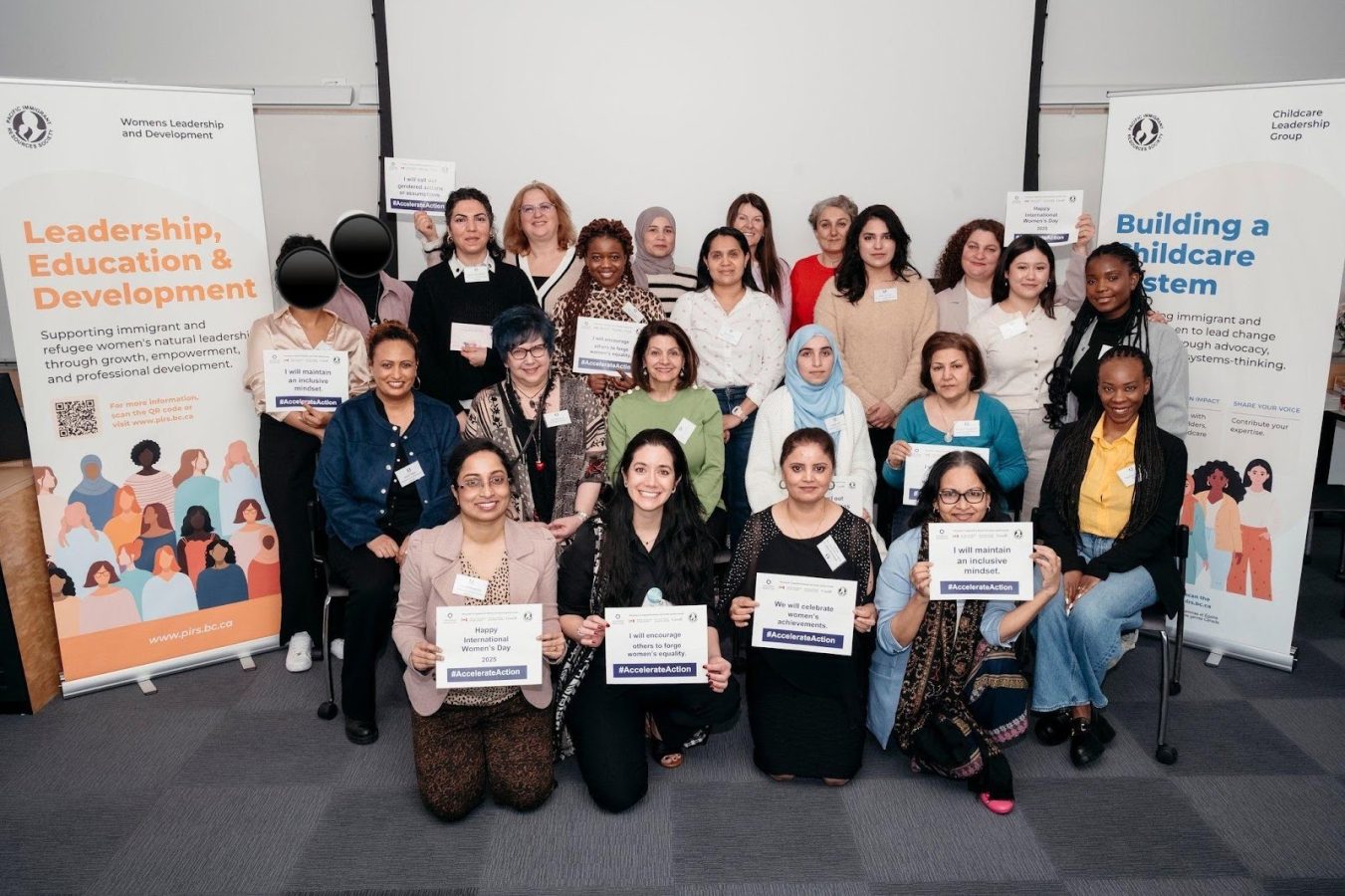Building a Childcare System that Works for Immigrant and Refugee Women—commonly referred to as Building a Childcare System—is a project funded by Women and Gender Equality (WAGE) Canada and implemented by Pacific Immigrant Resources Society (PIRS), grounded in a strong commitment to leadership development and advocacy. The project aims to empower migrant women to advance more inclusive child care policies in British Columbia and across Canada. By centering the voices, experiences, and needs of migrant women—many of whom work in caregiving roles or face significant barriers to accessing child care—the initiative seeks to promote both individual agency and systemic change.
Launched amid the COVID-19 pandemic, the project’s initial phase (April 2022 to March 2024) highlighted the vital link between accessible child care and women’s participation in the workforce. Particular attention was given to the barriers faced by migrant mothers in securing child care, as well as the challenges migrant child care workers encounter in entering and sustaining a career in the sector. Beyond addressing obstacles to training and employment in Early Learning and Childcare, the project fostered strong social networks through three cohorts of immigrant and refugee women—known as the Childcare Leadership Group—helping to reduce isolation and build solidarity.
We are pleased to announce that PIRS has secured renewed funding from WAGE Canada to continue and expand upon the successes of the first phase through a second phase, Building a Childcare System 2.0. From February 2025 to March 2026, the Women’s Leadership and Development department at PIRS is actively supporting a fourth cohort of twenty racialized immigrant and refugee women.
Through bi-weekly meetings, Building a Childcare System 2.0. empowers migrant women to develop their skills, confidence, and capacity to engage meaningfully in policy dialogue and decision-making that is aligned with the Canada-Wide Early Learning and Child Care Agreements. The cohort is deepening their engagement with partner organizations and policymakers who supported the first round of the project, while also forging new alliances with like-minded advocates.
The project provides platforms where the lived experiences of migrant women can inform and influence discussions around child care and care work more broadly. Concurrently, the initiative advocates for a child care system that better reflects the realities of immigrant and refugee families and the workers who support them, emphasizing the need for accessible, affordable, and culturally responsive services that acknowledge Canada’s diverse communities.
Through consistent and structured engagement, members of the Childcare Leadership Group are supported to become informed, confident, and empowered advocates for equitable and inclusive child care policies in Canada, starting within their own communities in Metro Vancouver. Building a Childcare System 2.0 combines grassroots leadership with policy advocacy to uplift migrant women while advancing a more just and inclusive child care system for all.
Why focus on migrant women in Early Learning and Child Care?
- It is a feminized sector; 96% of child care workers are women.
- Over 50% of all home child care providers in Canada are immigrants.
- Immigrants account for 39% of all Early Childhood Educators and child care providers.
- Almost 1 in 3 self-employed daycare providers are immigrants.
Note: This data is based on the 2021–2022 Canadian Survey on the Provision of Child Care Services by Statistics Canada and represents the most up-to-date data available at the time of writing (July 2025). However, given the elevated levels of immigration between 2021 and 2023—and the emphasis on early learning and child care as a priority sector for immigrant employment—it is likely that the number of immigrants working in the sector has increased significantly since the data was collected. The figures above likely underrepresent the current situation.

